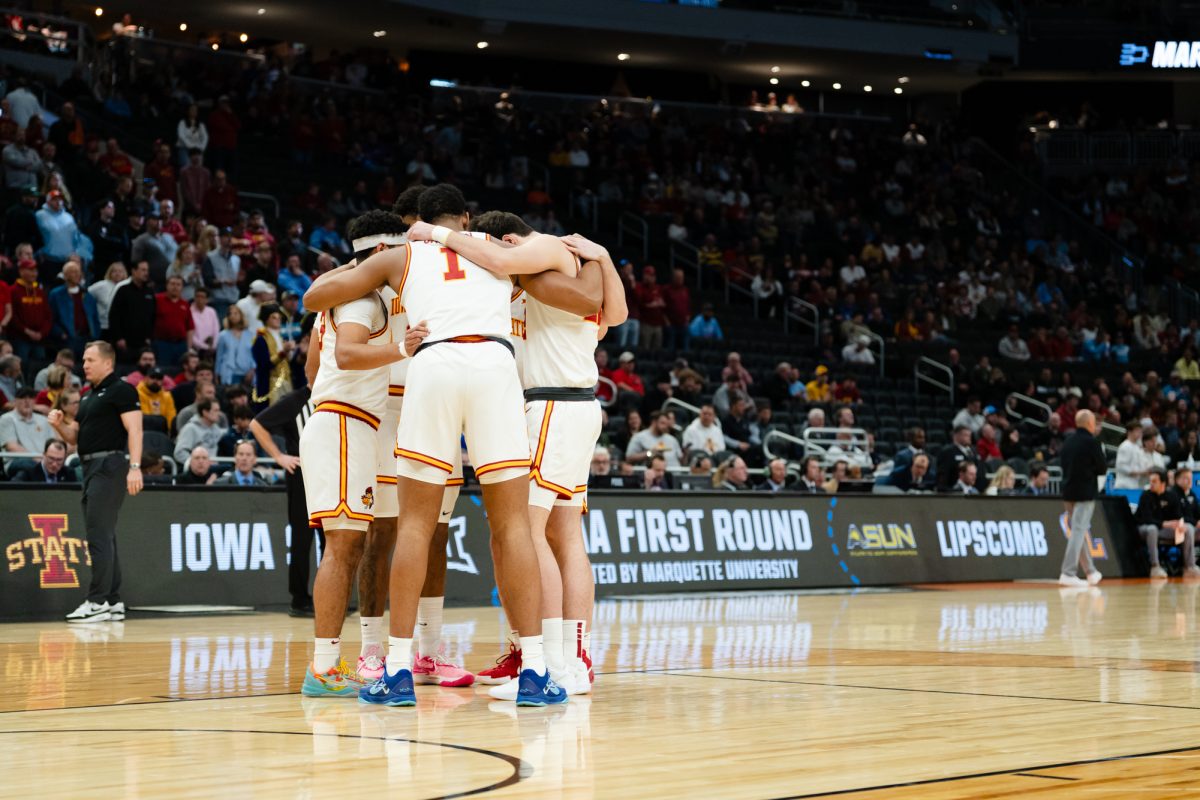In his own words: A rape victim shares his story
April 18, 2012
According to the Rape Abuse and Incest National Network, one in every six American women will be raped in their lifetimes. But a less known fact shows men also get raped. Statistics show that one in every 33 men will be sexually assaulted in his lifetime, and this is a topic that many people are too ashamed to speak of.
Here in Story County, there have been 273 reported cases of sexual assault, according to the Sexual Assault Response Team for Story County. Of those, 265 of them were women, and 94 of them were reported on ISU’s campus.
Only eight cases of sexual violence have been reported by men since 2006. According to the House of Ruth Dothan website, there are several reasons for this.
“Because of the way men are trained/socialized not to ask for help, expect themselves to be in control at all times and be active in sexual encounters, male survivors are often reluctant to talk to anyone about their victimization, much less report it to the police. A man who openly acknowledges being raped is violating everything we are taught to expect men to be.”
But, the Daily staff found one survivor who was willing to share his story with us in hopes it will help other male survivors cope with being assaulted.
“It happened in 2008 over spring break.” said John, who asked us not to use his real name. “I was studying for my undergraduate degree at Mizzou, and this woman was an entry level staff member so she was a little older than me.
“My undergrad lasted six years, so I was a little older than the other undergrads and closer to her age, so that’s why we clicked. She was one of my best and closest friends, and it was fairly typical for us to hang out a lot. We would sometimes drink at her place and have conversations about social justice and what I wanted to do with my life — where I wanted to go to grad school and stuff.
“She was a huge movie buff; we would get pizza and have some drinks while we watched the ‘classics’ she picked out that I had to watch. The night that this happened to me wasn’t any different: We were hanging out at her place, and I had a little bit too much to drink so I crashed on her couch. This wasn’t out of the ordinary. I had done this many times before.
“The next thing I knew, I was sort of half awake, half asleep and when I fully woke up, I realized that she was doing things to me while I slept. I had no idea what was going on, I was so in shock, and I didn’t really know what to do. I asked myself, ‘Is she really doing this? I thought we were just friends.’ I was extremely disoriented, and when I put the pieces together I realized what was happening, I kind of rolled away as if I was asleep. As I was trying to do that she pulled me back towards her, and that really scared me.
“But I still didn’t know what to say or what to do, so I did it again but this time I really forcefully turned and rolled over. I was pretending to be asleep the whole time, and of course I was wide awake and my whole body was numb. I was really confused, and I just kind of laid there facing away from her, and she eventually got up and left. I was still too drunk to drive, so eventually I went back to sleep, and in the morning I jumped in my car and left.
“I didn’t know what was happening. I didn’t know who I could talk to about this; I didn’t want her to get in trouble and lose her job. I also didn’t want people to know she did that because we weren’t dating; it was just a friendship.
“I felt really gross, and it was really weird. She called me the next day, and I didn’t know what to say, I had had time to think about it, and I was really, really mad. I couldn’t think of what to do so I just yelled at her, and she tried to tell me that I asked her to do it. She told me it was my fault and that I wanted her to do it, and it clearly wasn’t because I was asleep. I couldn’t talk to her for awile, I felt like I wanted to be extremely violent and I couldn’t do that.
“I completely cut her off; I threatened her and told her to never call me or come near me. I said some really violent things to her. I thought all of this would go away if I would get her out of my life. At the time I couldn’t block her number, and she would call and text me at 3 or 4 in the morning and say some weird things — things like ‘it’s your fault,’ ‘you’re a sexist piece of trash,’ ‘you’re abusive’.
“She was attacking my social justice identity. I’m against all kinds of violence in relationships. It made me feel guilty because I fought back in the only way I knew how: I got angry.
“For a couple of years I would have to turn my phone off when I slept because when it rang, I thought it would be her. I would get a real anxious feeling, and I wouldn’t be able to sleep the rest of the night. She was one of my best and closest friends, and I haven’t been that close with anyone since except my family.
“I didn’t really own the identity of a sexual assault survivor until I talked to someone. I told my story to a therapist, and he told me it was not my fault at all. He said that she was showing the common signs of a perpetrator trying to turn the blame on the victim. She even turned our mutual friends against me. … I couldn’t tell them what really happened, so I never said goodbye to a lot of my friends because of her.
“In a lot of ways I was starting to believe the things she was saying. … She even said she recorded everything in our conversation, but she would never let me see them. When I finally got her, I filed a harassment complaint with the ISU police, and to reconcile this they demanded the recordings she had, but she didn’t have them. I never consented to anything with her.
“That whole ordeal made me a much more guarded person towards anyone I would consider a close friend. It also gave me personal experience with sexual assault and getting re-traumatized by the perpetrator who wouldn’t leave them alone afterwards. I had talked to other sexual assault victims about it, read things about what victims do but had never understood it until I became one.”
There are a lot of ways that a victim of sexual assault can get help, the Assault Care Center Extending Shelter and Support has been helping survivors for years to deal with the issues that arise. According to the Rape, Abuse, and Incest National Network, 38 percent of victims are attacked by someone close to them, and 54 percent of sexual assaults are not reported to the police because survivors are afraid or embarrassed of what happened.
Editors Note: This story is for Sexual Assault Awareness Month. Activities have been happening throughout the month of April. The last event on campus at the Margret Sloss Women’s Center will be the showing of the movie Rosita at 3:00 p.m. this Friday.






